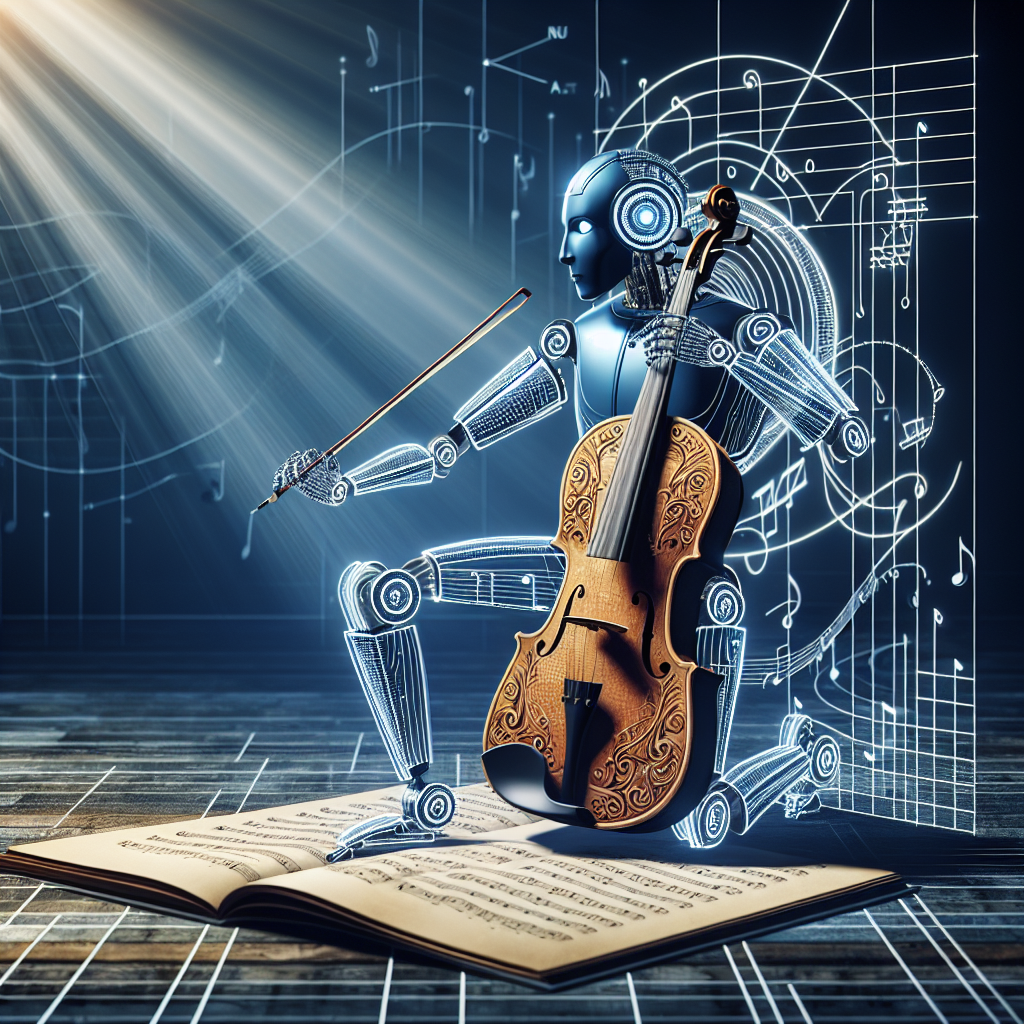Artificial Intelligence (AI) and music may seem like an unlikely pair at first glance, but they have actually been coming together in recent years to create some truly groundbreaking advancements in the world of music technology. From composing and producing music to analyzing and categorizing songs, AI is revolutionizing the way we think about and create music. In this article, we will explore the ways in which AI and music are being combined to create a match made in tech heaven.
One of the most exciting uses of AI in music is in the realm of composition. AI algorithms can analyze vast amounts of musical data to identify patterns and create original compositions. This allows musicians and composers to experiment with new ideas and styles that they may not have considered on their own. In fact, AI has already been used to compose music that has been performed by orchestras and even released as commercial recordings.
One example of AI composition in action is the work of the AI music startup Amper Music. Their platform uses AI to compose and produce original music for a variety of purposes, from film scores to video game soundtracks. By inputting parameters such as mood, tempo, and instrumentation, users can generate custom music tracks in a matter of seconds. This has the potential to revolutionize the way music is created for media projects, as it allows for quick and affordable access to high-quality music production.
In addition to composition, AI is also being used to analyze and categorize music in ways that were previously impossible. For example, Spotify uses AI algorithms to analyze the music preferences of its users and recommend new songs and artists based on their listening habits. This has led to a more personalized music discovery experience for users, as well as increased exposure for independent and lesser-known artists.
AI is also being used to analyze the emotional content of music. By analyzing factors such as tempo, key, and instrumentation, AI algorithms can determine the emotional impact of a piece of music and categorize it accordingly. This has implications for music therapy, as well as for marketing and advertising campaigns that seek to evoke specific emotions in their target audience.
Another exciting application of AI in music is in the realm of live performance. AI-powered music software can analyze the movements and gestures of a performer in real-time and generate accompanying music that responds to their actions. This creates a dynamic and interactive experience for both the performer and the audience, blurring the lines between human and machine creativity.
Of course, as with any new technology, there are challenges and ethical considerations to be addressed when it comes to AI and music. One concern is the potential for AI to replace human musicians and composers, leading to a loss of jobs in the music industry. However, many experts believe that AI will actually enhance the creative process for human musicians, providing them with new tools and inspiration to push the boundaries of what is possible in music.
Another concern is the issue of copyright and ownership in AI-generated music. Who owns the rights to a piece of music created by an AI algorithm? This is a complex legal question that will need to be addressed as AI becomes more prevalent in the music industry.
Despite these challenges, the potential for AI and music to revolutionize the way we create, consume, and experience music is truly exciting. By harnessing the power of AI, musicians and composers can push the boundaries of creativity and explore new possibilities in the world of music.
FAQs:
Q: Can AI compose music that is as good as music composed by humans?
A: While AI is capable of creating original compositions that are indistinguishable from those composed by humans, the subjective nature of music means that there will always be a place for human creativity in the music-making process.
Q: Will AI replace human musicians and composers?
A: AI has the potential to enhance the creative process for human musicians and composers, providing them with new tools and inspiration to push the boundaries of what is possible in music. However, many experts believe that AI will not replace human creativity in the music industry.
Q: How is AI being used in live music performance?
A: AI-powered music software can analyze the movements and gestures of a performer in real-time and generate accompanying music that responds to their actions. This creates a dynamic and interactive experience for both the performer and the audience.
Q: What are some ethical considerations when it comes to AI and music?
A: Some ethical considerations include the potential for AI to replace human musicians and composers, as well as the issue of copyright and ownership in AI-generated music. These are complex legal questions that will need to be addressed as AI becomes more prevalent in the music industry.
In conclusion, AI and music are a match made in tech heaven, with the potential to revolutionize the way we think about and create music. By harnessing the power of AI, musicians and composers can push the boundaries of creativity and explore new possibilities in the world of music. As AI continues to evolve and develop, we can expect to see even more exciting advancements in the intersection of AI and music in the years to come.

